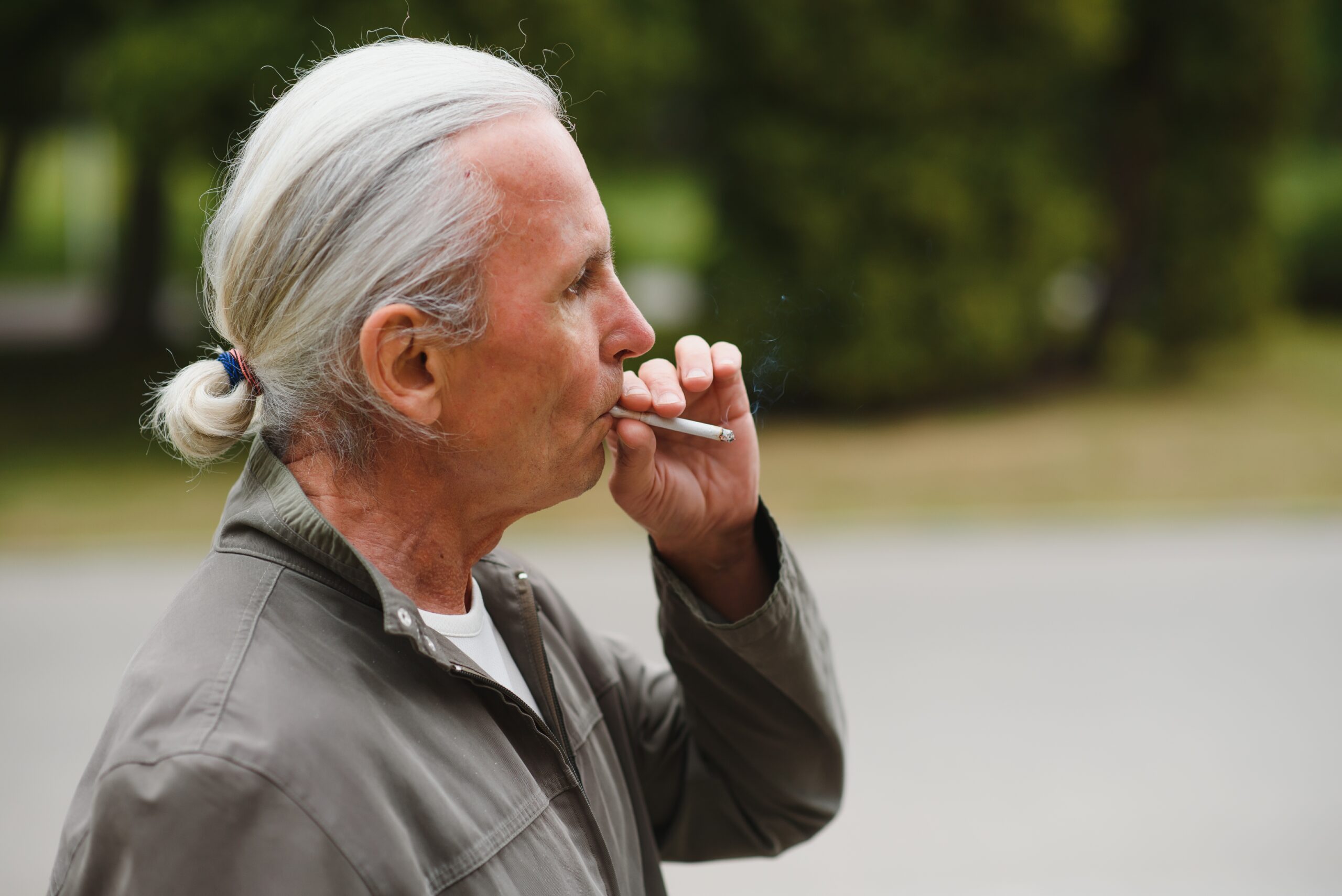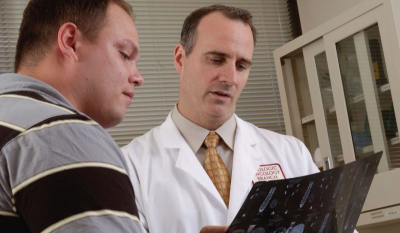Tobacco and Cancer
By George Lipmann
Smoking tobacco is linked with many forms of cancer. When you inhale smoke, you take in chemicals that can damage your cells. These chemicals can lead to changes in your body that raise your chance of getting tumors. Doctors have studied this for many years. They have found that cigarette use is often tied to lung, throat, and bladder tumors. A large study in The New England Journal of Medicine noted a clear rise in cancer cases in people who smoke for many years. The risk goes higher with each pack you use.
Some people think only heavy smokers get cancer, but even light use can add risk. There is no safe amount of smoke. Cigars and pipes can carry a similar danger. Secondhand smoke also poses harm. If you smoke around friends or family, they can breathe in harmful particles. Research shows that secondhand smoke has led to more illness and death in nonsmokers. This includes lung cancer and breathing problems.
Tobacco smoke has many harmful substances, such as tar, which is sticky and collects in your lungs. It makes it hard for your body to clear particles from your airways. Smoke also has things called carcinogens. These damage your cells over time. Your body tries to fix this, but long-term exposure often leads to more errors in cell growth. That may create tumors in the lungs, throat, or other areas.
When you stop smoking, you lower your cancer risk. Your body starts to repair itself. You may still have some damage if you smoked for many years, but quitting helps slow new harm. A study in the journal JAMA showed that quitting before age 40 reduced cancer death by 90% compared to those who kept smoking. People who quit at an older age also saw health benefits, though the improvements were smaller.
Your lungs clear some tar and debris when you stop. Over time, your cells work better, and you may breathe with more ease. Some ex-smokers say they have more energy for daily tasks. Quitting also lowers stress on your heart.
Many people wonder how to quit. Some use nicotine replacement products, such as patches, gum, or lozenges. These items give you a small amount of nicotine without the dangerous chemicals in smoke. They can ease cravings and help you build new habits. Your doctor or pharmacist can give advice on dosage and use.
You can also talk with your healthcare provider about medications that target nicotine cravings. Some drugs affect parts of the brain that yearn for nicotine. They may help you feel fewer urges to smoke. Many people find that a mix of medication and counseling works best.
Counseling can happen in groups or private sessions. It helps you see how your habits form and what triggers them. You might learn ways to manage stress without cigarettes. You might also develop new routines for times when you want to smoke. Some people find telephone hotlines helpful. They offer free coaching and support.
Some folks think e-cigarettes might be better. They do not burn tobacco, so they release fewer toxins, but they still contain nicotine and other chemicals. Researchers are still studying long-term effects of vaping. At this time, many experts do not rate e-cigarettes as safe. People who use them may breathe in particles that can harm cells.
If you slip and smoke again, do not feel shame. Many people try more than once. Each attempt gives you lessons about what helps and what does not. Set a quit date, mark it on your calendar, and prepare. If you relapse, set another date. You can also talk with your healthcare provider for more ideas.
Tobacco use can cause lung cancer and other forms of the disease. It may raise your risk for mouth, esophagus, kidney, and pancreatic tumors. It can also affect other parts of your body. Smoking can change how your blood vessels work. It can raise your blood pressure and reduce how much oxygen your cells get. Your body may age faster. Skin often looks dull or wrinkled sooner than in nonsmokers.
Experts say that smoking slows healing. If you have surgery, you may need more time to recover. This can cause more problems with wounds and a higher risk of infection. That is why many doctors advise people to stop smoking before procedures.
Quitting can also help you save money. Cigarettes cost a lot. You might put that money aside and use it for other needs. Some people treat themselves each week they stay smoke-free. Others pay down bills or enjoy time with family.
Changing your routine can help you avoid triggers. If you often smoke after a meal, you can take a walk instead. If you miss having something in your hand, try a stress ball. If you want that feeling in your mouth, chew gum or sip water. You can also remove cigarettes and ashtrays from your home or car. Some people wash their clothes to remove the smell of smoke. These steps can help you stay on track.
Stress can bring on cravings. You can learn new ways to cope. Some try simple breathing exercises. Sit in a chair, close your eyes, breathe in slowly, then let the air out. Do it a few times when you feel tense. Others talk with a friend or counselor for relief.
Family and friends can support you. Tell them you plan to quit. Let them know you may feel cranky at first. That is normal. They can offer praise or spend time with you when you need a break from stress. If possible, ask them not to smoke around you.
Research in The Lancet shows that people who never smoked have a lower risk of many cancers. It also shows that stopping at any age helps your body. This highlights the benefit of quitting as soon as you can. There may be no perfect time, but each day without tobacco is better than the day before.
Speak with a healthcare provider about checkups. Early detection of tumors can find disease before it spreads. If you are a long-term smoker, your doctor might suggest lung imaging scans. These tests can catch small tumors when they are easier to treat.
A balanced diet supports health as well. Fruits and vegetables have vitamins that may protect cells. Physical activity can help your mood and control weight. Exercise can also distract you from cravings. A brisk walk around the block might ease tension when you feel the urge to smoke.
Some people worry about weight gain after quitting. A few pounds is common, but you can manage that with healthy food choices and exercise. Even if you gain a little, you are still better off than if you continued smoking. The risk of cancer and heart disease drops once you quit.
Some smokers think low-tar or light cigarettes are safer. Studies show that they are not much better than regular ones. People often inhale the same chemicals. They may puff harder to get the nicotine they want, drawing smoke deeper into their lungs. That offsets any small benefit of a “light” label.
Secondhand and thirdhand smoke also harm health. Secondhand smoke is what others breathe in. Thirdhand smoke is residue on walls, clothes, or furniture. Children can pick up these particles on their hands. They can then ingest them. Research suggests these particles can cause harm. That is why it helps to avoid smoking in homes, cars, or near kids.
Some people feel stuck if they have smoked for a long time. They think it is too late to help their body. Studies show that you can see gains even if you have smoked for decades. You lower your risk of forming new tumors. You also protect your heart and lungs from further harm. Each day without smoke is a benefit.
You can track your progress in a journal. Write how you feel each week. Note any changes in breathing or mood. Mark any slip-ups and think about what caused them. Plan ways to deal with that trigger in the future. You can also list reasons why you quit. That can keep you motivated.
If you know a friend who smokes, you might quit together. You can call each other when cravings hit. You can share tips or celebrate small wins. That teamwork may help when you feel tempted to give up.
Researchers also study genes and how they relate to smoking. Some people have genes that make them more sensitive to toxins. That can boost the risk of tumors. But even with a higher genetic risk, stopping tobacco gives benefits. You breathe in fewer chemicals each day, which lowers overall damage.
Quitting can improve your sense of taste and smell. Many people find that foods taste better. You might also breathe easier and climb stairs with less effort. Former smokers often say they cough less once they stop. These changes happen at different speeds, but most people see some improvement over time.
Some folks use phone apps or text programs for support. These can send tips or track your progress. They can also send quick notes during cravings. Many of these tools are free from health agencies.
Local support groups may hold meetings for those trying to quit. Members share tips and experiences. You can ask at a nearby hospital or clinic. Online forums can also help, though it is wise to find groups with clear guidelines and a moderator.
Doctors know that smoking is a top preventable cause of early death. Quitting can reduce your chances of many cancers and other health problems. This includes heart disease, stroke, and lung issues like emphysema. Each year without smoking adds time and quality to your life.
Set a goal to stop soon. Think about the times you reach for a cigarette. Plan other ways to handle those moments. Stock up on gum or snacks. Ask family or friends for help. You can also see a healthcare professional who may suggest medication or counseling.
Many people fear withdrawal. It can be hard at first. You might feel edgy or have trouble sleeping for a short time. These symptoms often get better after a couple of weeks. Nicotine replacement can ease that phase. Talk with your provider about the best option.
Over time, your body gets used to life without nicotine. Cravings become fewer. You might find breathing gets easier. Your risk of certain cancers drops with each year that you stay smoke-free. You may have less worry about future disease. You can spend more energy on the things you enjoy.
For more data, you can check journals like The Lancet, JAMA, or The New England Journal of Medicine. They publish many studies on tobacco and cancer. You can also speak with health experts at your local clinic. They can share facts in plain language.
It may take more than one try, but many people have quit smoking and stayed off it. Each day without tobacco is a step that protects your health. You can do it with a plan and a bit of help. You might find that life without cigarettes brings new energy and fewer health concerns.
Sticking to your plan can change your future. Lowering your cancer risk supports better living in the years ahead. You can breathe more easily, move more, and have fewer worries about diseases linked with smoking. Research is clear: stopping tobacco is one of the best things you can do for your body.
Scientists also look at cancers in the head and neck. Research in the Journal of Clinical Oncology reports higher rates of oral cavity tumors in people who smoke. Chemicals in tobacco harm cells in the mouth and throat. When combined with heavy alcohol use, the risk goes up. Each factor makes the other worse.
Smoke toxins enter the bloodstream. Your blood carries them to many parts of the body. That explains why smoking is linked to cancers in the pancreas, liver, and colon. The damage is not only in the lungs.
Quitting helps your immune system. Smoking weakens it. It also affects how well vaccines work. When you stop, your immune cells can do their job more effectively. That may lower some infections and help your body fight abnormal cells.
Pregnancy also comes into play. Smoking while pregnant can harm the fetus. It may lead to low birth weight and other issues. If you have friends or family who are pregnant, avoiding smoke around them helps protect both parent and child.
In times of temptation, support lines or text reminders can help. A daily note can keep you on track. You might get a text at midday that prompts you to skip a smoke break. Instead, you might have a glass of water or take a short walk.
Some try a harm reduction approach by cutting back first. They may smoke fewer cigarettes each day before stopping altogether. While many experts favor stopping all at once, any cutback can be a step in the right direction.
When you give up tobacco, breath and teeth often improve. Smoke can stain teeth and inflame gums. Dentists see fewer gum problems in non-smokers. You might find your mouth feels fresher, and food has more flavor.
Social settings can be a test. If friends step outside to smoke, find another activity. Talk with a person who does not smoke, or keep a water bottle or mints handy. Each avoided cigarette builds your confidence.
Smoking can also affect mood. Nicotine might feel calming, but withdrawal can trigger restlessness or low feelings. A mental health professional can help if you face depression or anxiety. Medications can address these issues and also ease the process of quitting.
If you slip and smoke a few times, stop again. Each time teaches you about triggers and how to handle them. You learn what sets you off, and you find better ways to respond. That can lead to long-term success.
By quitting, you also set a good example for children. If they see you smoke, they might think it is normal. When you stop, they learn that health choices matter. You also keep them safe from secondhand smoke.
Researchers keep looking for new treatments and counseling methods. Your provider can let you know about fresh programs. Some workplaces also offer free help with quitting.
Nicotine replacements come in many forms. Some are over-the-counter, while others need a prescription. Examples include nasal sprays or slow-release patches. Talk with a professional about which one might fit your routine.
Healthy snacks can distract you from cravings. Carrot sticks, celery, or sugar-free candy can help. Water is useful, too. It keeps you hydrated and can flush out harmful substances.
Over time, you might forget how strong your cravings once were. Many ex-smokers say they no longer reach for cigarettes when stressed. That is a sign of freedom from the habit. It can bring relief.
Staying tobacco-free can also boost self-esteem. People feel proud when they stop smoking. They might share their story to help others. That adds to the number of people who quit and stay quit.
Your body is a complex system, and smoking harms many parts of it. Each cigarette adds damage. Each smoke-free day brings healing. You may not see all the effects right away, but each day without tobacco helps. That can include fewer cancer risks and a better quality of life.







